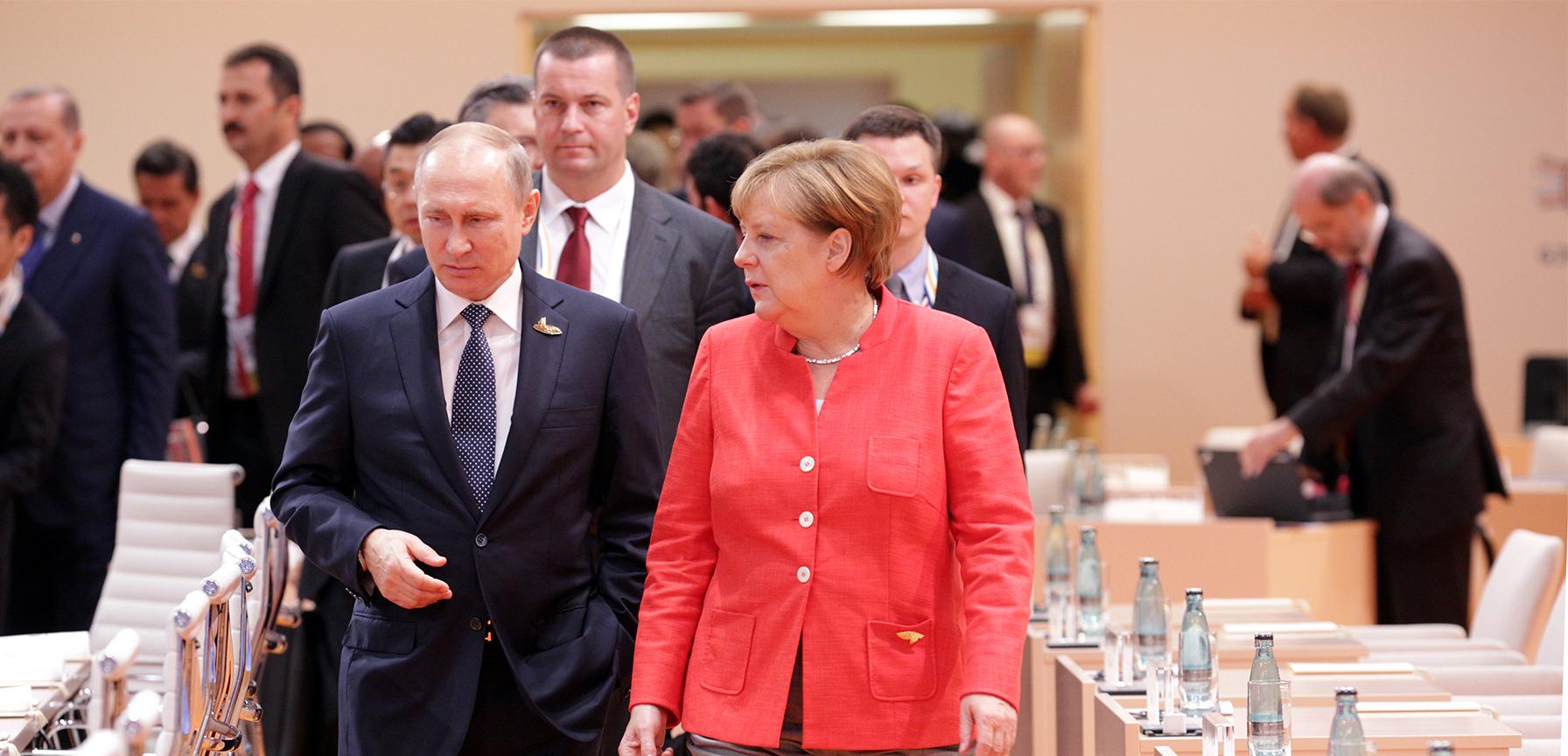I understand the fundamentals. Russia lost Germany back in 2014 or even earlier. Seventy-three years after the end of WW2 and twenty-eight years after the reunification, the new generation of Germans owes Russian nothing. After the Ukrainian crisis, no ‘business as usual’ is possible in any foreseeable future; Moscow and Berlin continue to sharply disagree on many critically important international matters. Germany is and will always be a disciplined member of NATO and that of the European Union; it will not take any initiatives that might look risky, inappropriate or untimely to other members of these organizations. To cut it short, there are absolutely no reasons to hope for any breakthrough in the German-Russian relations just because a new coalition government has finally arrived at Berlin.
However, a new government in Berlin is always a new opportunity — not only for Germany itself, but also for its international partners, Russia including. After all, the Federal Republic is not just another European country. It has always been a driving force behind the European integration, an articuatel — and sometimes explicitly dissenting — voice in the North Atlantic Alliance. Is there another country that could be more interested in overcoming the new division of our common continent, in avoiding a nuclear and conventional arms race in Europe, in preventing nationalism, populism and unilateralism from getting the upper hand anywhere between Lisbon and Vladivostok?
I understand the fundamentals. Russia lost Germany back in 2014 or even earlier. Seventy-three years after the end of WW2 and twenty-eight years after the reunification, the new generation of Germans owes Russian nothing. After the Ukrainian crisis, no ‘business as usual’ is possible in any foreseeable future; Moscow and Berlin continue to sharply disagree on many critically important international matters. Germany is and will always be a disciplined member of NATO and that of the European Union; it will not take any initiatives that might look risky, inappropriate or untimely to other members of these organizations. To cut it short, there are absolutely no reasons to hope for any breakthrough in the German-Russian relations just because a new coalition government has finally arrived at Berlin.
However, a new government in Berlin is always a new opportunity — not only for Germany itself, but also for its international partners, Russia including. After all, the Federal Republic is not just another European country. It has always been a driving force behind the European integration, an articuatel — and sometimes explicitly dissenting — voice in the North Atlantic Alliance. Is there another country that could be more interested in overcoming the new division of our common continent, in avoiding a nuclear and conventional arms race in Europe, in preventing nationalism, populism and unilateralism from getting the upper hand anywhere between Lisbon and Vladivostok?
All the other European capitals notwithstanding, it is Berlin, which has the highest stakes and the strongest positions in dealing with Moscow. The current change of the guard cannot produce a miracle in the relationship with the Kremlin, but it can help to reverse the dynamics of this relationship,
Let me offer seven specific proposals, which, in my view, are not beyond the reach of the new coalition government. The list of these proposals is in no way complete or comprehensive; it reflects personal biases and preferences of the author. None of them alone will dig us out of the hole we are in, but they will definitely make the sides of the hole less steep.
1. Take a more active position on Ukraine. I do not want to sound condescending towards Ambassador Kurt Volker and his Russian counterpart Vladislav Surkov, but given the current downward trajectory of the US-Russian relations, it looks very unlikely that this bilateral track could lead to even a limited progress in Donbass anytime soon. The time has come to reactive the Normandy format process, including its top political level. The pause in the Minsk process has been too long, and there is a growing danger that we will lose the only legitimate mechanism of managing the crisis in and around Ukraine.
2. Come up with a new energy plan for Europe. Recently the European energy agenda almost completely degenerated to battles about the fate of North Stream-2. However, this agenda should be much broader. It could include exploring potential energy cooperation between EU and the Eurasian Economic Union, promoting energy efficiency and renewables’ development, moving to common energy standards, providing energy infrastructure safety and many other ‘non-toxic’ dimensions, where Germany can rightfully claim leadership positions. By broadening the energy agenda, one can turn this field from a highly divisive into a consolidating one.
3. Offer a more flexible anti-Russian sanctions’ mechanism. I am not suggesting that Germany should push for a complete lifting of sanctions tomorrow. Nevertheless, sanctions usually work only if the side imposing sanctions can expeditiously react to even minor changes in behavior of the side, against which sanctions are applied. The four-year sanctions war between the West and Russia demonstrates the need to create a more nuanced, more calibrated set of economic incentives and disincentives for the other side to consider.
4. Contemplate a NATO-Russia crisis management group. The current state of the NATO-Russian Council (NRC) does not look exceedingly optimistic. For a variety of reasons, this body is not going to be completely functional for a long time. On the other hand, we need urgent steps to secure ourselves against human errors, miscalculations, inadvertent escalations and other unfortunate developments. An ad-hoc mechanism would not replace NRC or compete with the latter, but it could help us to hold on until the time when NRC can operate at its full capacity.
5. Get involved into the INF matter. The Intermediate Range Nuclear Forces Treaty of 1987 (INF) is a bilateral agreement between Moscow and Washington and formally Berlin has nothing to do with it. Today INF is in jeopardy and with every passing month, it becomes more and more difficult to keep it alive. If INF is dead, the European security will get a colossal blow. This gloomy prospective not only justifies a more active German position, but calls for such a position. For instance, Germany could offer to host a special US — Russian summit with a sole task of saving INF.
6. Promote all-European humanitarian spaces. To keep Russia as a pat of Europe, one has to preserve and to cultivate further remaining all-European spaces - in research, in education and in culture. Germany traditionally played an important role in this regard: it hosted more Russian students and researchers than any other EU nation, it accommodated a very sizeable Russian Diaspora, and it was a destination of preference for many Russian musicians, artists and writers. It could do more in the current difficult environment, for instance, by lobbying in Brussels for a Schengen visa liberalization or even for a non-visa regime for Russian students, scholars and civil society leaders.
7. Come up with a new plan for OSCE. Today the German Foreign Ministry starts a fight for a place of a non-permanent member of the UN Security Council. This important goal notwithstanding, I would still emphasize the importance of a continuous German engagement in the OSCE enhancement efforts. The 2016 German Chairmanship in OSCE gave birth to the Structured Dialogue on current and future security challenges, which remains one of the most promising formats of the East-West communications. Today, OSCE still needs a lot more of German attention and of German vision — a political investment definitely worth making.
Does any of these proposals look as a manifestation of an appeasement approach? Can any of them compromise core values of the German foreign policy? Would they divert too much attention and energy from other priorities? Should they lead to difficult problems between Germany and its allies? I hope that the answers to all the above questions are unequivocally negative.






